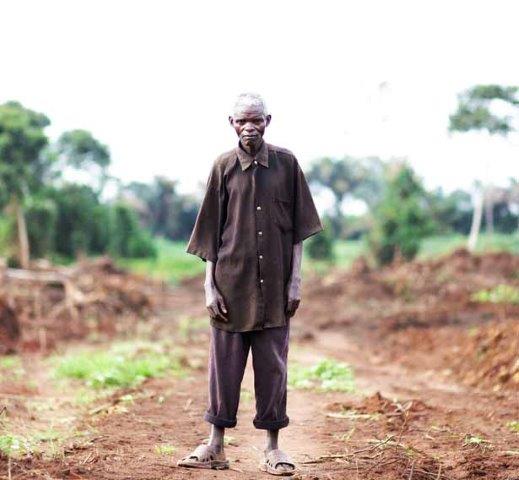- Blog
- Sustainable Economic Systems
- Protect forests, reject landgrabs: Tell investors to stop bankrolling big palm oil
Protect forests, reject landgrabs: Tell investors to stop bankrolling big palm oil

Donate Now!
Your contribution will benefit Friends of the Earth.
Stay Informed
Thanks for your interest in Friends of the Earth. You can find information about us and get in touch the following ways:
Industrial agriculture has long been a major cause of forest destruction, but the ceaseless expansion of palm oil plantations for food, fuel and cosmetics is wreaking havoc on an unprecedented scale, and has become the biggest single cause of forest destruction in the tropics today. In response, Friends of the Earth is launching a new phase in our work to protect the world’s forests by targeting the financiers behind palm oil.
Our Landgrabs, Forests & Finance campaign is demanding that big banks and investors (see list of investors here) hold the world’s largest palm oil company, Wilmar International, accountable for its assault on forests, forest peoples, and the global climate.
Worldwide, palm oil consumption has grown steadily for over a decade, making it the world’s most widely used vegetable oil and the cheapest oil to produce and refine. In the United States, palm oil is in about half of our packaged foods and cosmetics — usually under generic or disguised names. In Europe, palm oil is second only to canola oil as a biofuel feedstock.
Like other cheap commodity crops, palm oil comes at a high social and environmental cost, expressed in the devastating impact its production has on tropical forests. The rapid rise of palm oil, and its low price, have been enabled by a global wave of land grabbing, where national governments are virtually handing over huge swaths of land to global companies with little concern for social and environmental destruction. Between 1990 and 2010, the global land area devoted to plantations for palm and other industrial scale crops has grown by a shocking 400 percent, leading to deeper poverty for millions of the world’s poorest people.
Palm oil also has serious repercussions for the climate: when grown on converted peatlands, as it often is in Indonesia, palm oil production can result in over 2,000 percent more greenhouse gas emissions than petroleum-derived diesel. In Indonesia alone, 25 million acres of peatlands have been destroyed to make way for palm oil. Even in non-peat ecosystems such as forests and grasslands, conversion to plantations releases large amounts of carbon dioxide into the atmosphere.
Wilmar has been ranked the least sustainable of the world’s 500 largest publicly traded companies two years in a row. When one company controls 45 percent of the global market, and when this company has a track-record of systematic abuse and a trajectory of massive expansion, it makes it pretty clear where we need to put our energy to defend forests and forest peoples’ rights. And because this company depends on large infusions of money from private banks and investors, one powerful way to force Wilmar to clean up its act is by pressuring those investors to pull their money out.
In 2012, Wilmar earned profits of $1.3 billion from over 600,000 acres of plantations in Indonesia, Malaysia and Africa. While Wilmar’s PR hinges on its commitment to “sustainable growth”, the communities and habitats in the pathway of its rapid expansion reveal a different story.
As the UK Guardian reported last month, in Indonesia — ground zero for palm oil — thousands of reported human rights violations and hundreds of land conflicts are linked to corporate-led deforestation. The impacts on wildlife are similarly devastating: over a decade ago, the World Bank reported that Indonesia is “undergoing a species extinction spasm of planetary proportions.” Orangutans, among other species, are perilously endangered by habitat destruction from the palm oil industry. In Central Kalimantan (Indonesian Borneo), about 25 percent of Wilmar’s plantations are in orangutan habitat, with devastating effects.
The good news is, Indonesia is considering legislation to limit the area available to new palm oil plantations. The bad news is, the palm-oil-fueled land grab is moving to Africa.
Palm-oil-related land grabs are taking place in Liberia, Congo and Cameroon, often under the guise of socioeconomic development and environmental protection. Wilmar has recently bought up huge plantations in Cote d’Ivoire, Ghana, Uganda, and Nigeria. According to the Nigerian NGO Rainforest Resource and Development Centre, Wilmar has already deforested and bulldozed thousands of acres, including lands inside national parks and other formerly protected areas, despite having no consent from local landholders and no legal right to the land.
In Uganda, a government keen to attract foreign investment is working with Wilmar and other private companies to plant thousands of acres of palm in the highly biodiverse Kalangala Islands on Lake Victoria. As Friends of the Earth Europe documents on video, Wilmar’s project has destroyed thousands of acres of forest, polluted Lake Victoria, and thrown dozens of smallholder farmers off their land.
Without access to financing, the palm oil industry can’t maintain its destructive path. Over the last several years, some investors, including the Norwegian Government Pension Fund, have divested from Wilmar. At Friends of the Earth, we’re picking up on this momentum and asking North American investors like Bank of America, Citigroup, and North America’s three largest pension funds to get Wilmar to stop destroying forests or get Wilmar out of their portfolios. By cutting off financial flows to the world’s least sustainable company, we can begin to stem the tide of forest destruction.
Take action now and tell big banks and investors to stop financing forest destruction.
